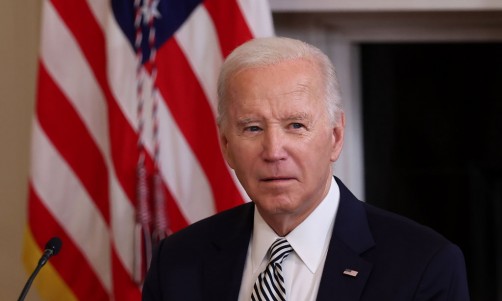Economic freedom is an aggregate measure of how much control people have over their own property and labor, both within individual countries and across the entire world. Economic freedom is driven by multiple factors, among them market openness, government and judicial integrity, and general respect for the rule of law. Needless to say, different countries enjoy different levels of economic freedom, and even in our increasingly interconnected, global world, individual governments retain considerable control over their citizens' monetary sovereignty.
Financial experts the world over have long pondered how to nurture a global economy where anyone can participate, individual property rights are enforced, and assets retain stable value. For proponents of digital currency, the widespread adoption and use of crypto is the answer. Cryptocurrency enthusiasts have long argued enthusiastically for its ability to drive greater economic freedom in the world. This ability, supporters attest, is rooted in the following fundamental properties of crypto:
Safe from Seizure or Theft
One of cryptocurrency's greatest draws is that it exists outside the control of banks, governments, and other regulatory institutions. This means that users of crypto can acquire, grow, and save assets without fear that these might be unjustly frozen, seized, or confiscated.
Many privacy-focused cryptocurrencies, such as the altcoin Monero, go the extra mile to ensure that transactions cannot be tracked or interfered with by only allowing users to trade coins through specialized wallets. The best Monero wallet comes equipped with highly sophisticated anonymization protocols that prevent anyone besides directly involved buyers and sellers from even seeing how much money is being exchanged.
This decentralized quality of cryptocurrency is especially game-changing for countries living under oppressive regimes, as well as those whose economies suffer from government mismanagement, poor financial policy, or faulty infrastructure. Users in these countries can, for example, receive peer-to-peer crypto payments from friends or relatives abroad without fear of government intervention. They can also enter contractual agreements with confidence that the contract's terms will be enforced, as crypto transactions depend on smart contracts that are enforced not by courts but by the blockchain itself.
Globally Accessible Open Network
Cryptocurrency networks aren't bound by geopolitical borders or any other jurisdictional restrictions. They are completely open and accessible to anyone with an internet connection, enabling individuals to transact with one another on a shared network from any country in the world.
Furthermore, as previously mentioned, crypto networks aren't administrated or otherwise controlled by any third-party organization. Cryptocurrencies are instead collectively controlled by users of the particular currency around the world, who work collectively to authenticate and document the many transactions made each day. This fundamental aspect of crypto's design paves the way for a more open market in which participants are free to trade, invest, and spend as they see fit.
Decentralized, Market-Determined Value
The decentralized nature of cryptocurrency is also believed by many to protect crypto assets from inflation, bank failures, and other adverse financial events. Unlike traditional paper or metal money, crypto coins can't be generated in unlimited quantities. Rather, the number of coins available in any digital currency is strictly determined by that currency's blockchain, and the process of creating new ones involves the utilization of multiple complex mathematical algorithms.
In sum, no institution can dilute the value of a particular cryptocurrency by simply producing more coins. Crypto prices are determined not by institutional controls but by the actual conditions of supply and demand within the market itself. As a result, many investors in cryptocurrency feel it provides them with a steadier and more dependable source of value than more traditional forms of wealth.
Non-Discriminating
The vast majority of transaction information stored on crypto networks is recorded pseudonymously, if not fully anonymously. The network doesn't display users' personal information such as their name, address, gender, or racial identity. Nor does the network take this information into account when it comes to deciding which users can access crypto and in what ways they can use it. Any user with access to the internet is free to open an account, create a wallet, and perform transactions.
While crypto service providers such as exchanges and wallet platforms are legally required to abide by certain compliance regulations, no single service provider owns the network or controls all cryptocurrencies in operation. Users can thus gain access to crypto through other providers if mainstream services aren't accessible to them for any reason.
Supports Personal Mobility and Safety
It's undeniable that cryptocurrency is unable to influence certain key drivers of economic freedom, such as government integrity and fiscal policy. What crypto can do, however, is improve individuals' mobility and empower them to make necessary choices for their personal safety and that of their families. Crypto assets, after all, can be stored more securely and transported more easily across geographical borders than traditional currency. In the process, cryptocurrency can grant disenfranchised individuals a measure of economic freedom by expediting safe and speedy exit from their countries of origin.
While crypto is in many ways still a young and developing technology, it has significant potential for enhancing economic freedom in the world at large. Particularly in countries that don't enjoy as much economic freedom, crypto can jumpstart the development of more functional economies or help especially disadvantaged citizens emigrate overseas. At its core, cryptocurrency encourages people to imagine a freer and more open economy founded on individual agency and respect for property rights.














